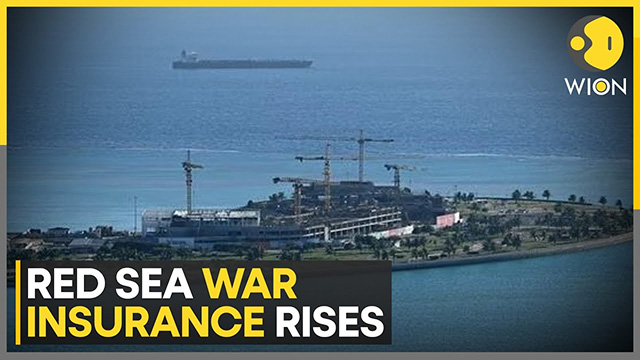
The crisis in the Red Sea has disrupted shipping through the Suez Canal. And the Suez Canal is the shortest sea route between Asia and Europe, through which about 15% of world maritime trade passes. What is happening has an impact on the European economy, writes ‘Al-Ain’ from the United Arab Emirates. According to analysts, the West cannot escape the consequences of Houthi attacks on merchant ships:
Below are some of the factors policymakers consider when assessing the impact of the Red Sea crisis.
How did this affect the European economy?
From a macroeconomic point of view, the effect is still insignificant. Germany's economics ministry said last week that the only noticeable impact was a few cases of longer delivery times.
Bank of England Governor Andrew Bailey agreed, telling a parliamentary hearing that the Red Sea crisis had not in fact had the effect that Bailey had feared, although there was still uncertainty about the future of global trade.
So far, Houthi attacks on commercial ships have not had an impact on Europe's main economic indicators, including December inflation, which increased slightly.
It is possible that European Central Bank (ECB) President Christine Lagarde will address this topic at a press conference after the interest rate meeting.
Global economic performance continues to be weaker than expected, indicating a significant slowdown in the global economy.
Oil prices, for example, could hit the economies of Europe and beyond.
But the impact of the Red Sea crisis has not yet emerged as supplies are high and demand growth is slowing. This was stated by the Executive Director of the International Energy Agency (IEA) Fatih Birol. “I do not expect significant changes in oil prices, since sufficient volumes of this energy resource are supplied to the market,” he added.
It becomes more difficult for companies to pass on higher production costs to consumers, which may arise, for example, due to the need to rebuild logistics – bypassing Africa. Many have restored profitability over the past year but admit they may just have to accept falling profits.
Furniture retailer IKEA even said it would stick to planned price cuts and that it could weather any supply chain disruptions.
As long as most companies adhere to this optimistic view, disruption to commercial shipping in the Red Sea will not lead to higher consumer prices.
Can European policymakers avoid the consequences of the Red Sea crisis?
Answer: no.
The longer this crisis lasts, the more strongly it will affect European companies and the Western economies as a whole.
American electric vehicle manufacturer Tesla intends to suspend most of the workshops at its plant in Germany from January 29 to February 11 due to a shortage of components.
The Swedish company Volvo Cars will suspend production of cars at its plant in the Belgian city of Ghent due to delays in the supply of spare parts caused by the situation in the Red Sea.
The crisis in the Red Sea is likely to affect European imports more than exports: almost a quarter of goods entering Europe are shipped by sea from Asia, while the same route accounts for just 10% of European exports.
The current situation may prompt companies to use alternative, more predictable routes developed in the wake of the COVID-19 pandemic, which has also disrupted global supply chains.
Longer but safer trade routes or other options may be used. But whatever alternatives are considered, they have one thing in common: higher costs. Oxford Economics estimates that rising container shipping costs will push inflation up by 0.6% over the course of the year.
read more in our Telegram-channel https://t.me/The_International_Affairs

 10:21 27.01.2024 •
10:21 27.01.2024 •






















